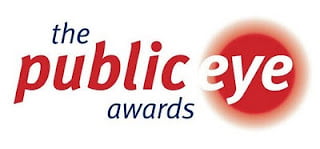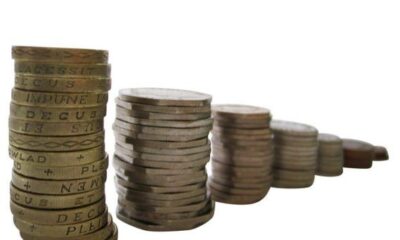

Economy
Vale and Barclays named and shamed at ‘anti-Davos’ awards
Vale and Barclays have been recognised at the 2012 Public Eye Awards for their “social and ecological offences”. Alex Blackburne has a look at why the two were chosen as recipients for the undesirable gongs.
Over 25,000 people voted for Brazilian mining giant Vale at the 2012 Public Eye Awards, an awards ceremony that names and shames large corporations for their social and ecological carelessness.
Vale and Barclays have been recognised at the 2012 Public Eye Awards for their “social and ecological offences”. Alex Blackburne has a look at why the two were chosen as recipients for the undesirable gongs.
Over 25,000 people voted for Brazilian mining giant Vale at the 2012 Public Eye Awards, an awards ceremony that names and shames large corporations for their social and ecological carelessness.
Deliberately staged to run alongside the World Economic Forum (WEF), the Public Eye Awards are to the WEF what the Razzies are to the Oscars. Though perhaps not as much of a spoof.
Instead, the awards highlight large-scale cracks in business agenda and company ethics, much to the obvious annoyance of the dubiously decorated corporations.
The Public Eye Awards is now in its eighth year, and is organised by Swiss NGO, the Berne Declaration, and Greenpeace Switzerland.
Since its inception, it has picked up the moniker the ‘anti-Davos’, in relation to its antagonistic position against the World Economic Forum.
Previous ‘winners’ include Walmart, Shell, Bridgestone, Walt Disney and the Royal Bank of Canada.
After over 88,000 total votes, of which it received nearly 30%, Vale picks up the 2012 ceremony’s People’s Award.
“The corporation has a 60-year history tarnished by repeated human rights abuses, inhumane working conditions and the ruthless exploitation of nature”, notes the awards’ website.
It also comments on Vale’s building of the Belo Monte Dam in the Amazon, which it says could have “disastrous consequences for the indigenous population as well as flora and fauna”.
The awards might be seen as tongue-in-cheek because they mock up spoof videos and banners on behalf of the various nominees, but its underlying message is abundantly clear and those accused of irresponsibility are forced to respond.
The Business & Human Rights Resource Centre, an independent resource of companies’ human rights news, posted a reaction from Vale on its website.
The Brazilian corporation refutes the “serious unsubstantiated allegations” insinuated by receiving the Public Eye People’s Award.
“Vale strongly objects to the misrepresentations brought against it”, it continues.
“Our commitments and our investments have allowed us to be recognised as a global sustainable operator – an accomplishment made possible by the outstanding efforts of our employees and partners around the world and one we remain committed to maintaining”.
In relation to the citing of Vale’s involvement in the Belo Monte Damn project, Vale claimed it was merely a “minority shareholder”.
The irresponsibility of Barclays was also acknowledged at the ceremony, with the British bank receiving the Public Eye Global Award for its food speculation practices, after it was nominated by the World Development Movement.
“As the fastest-growing food speculator in the world, Barclays drives up food prices at the expense of the poorest”, the awards’ website says.
Food speculation is the practice of betting on whether food prices will rise or fall (this video provides a great visual background), and Barclays is allegedly attempting to block any European regulation to stop it.
It also offered a response on the Business & Human Rights Resource Centre website, though its words do little to deny its malpractice with regards to food speculation.
“A considerable number of studies have demonstrated that financial flows have little or no impact on commodities prices” it wrote.
“The factors influencing food prices are complex and multiple, ranging from extreme weather conditions to export bans and rising supply and demand from emerging markets”.
The recognition of corporate irresponsibility at the Public Eye Awards further highlights the need for increased ethical and socially responsible agendas in large-scale businesses.
There are plenty of fast-growth companies that don’t have any moral discrepancies, and you can help them become major players by choosing to invest in them.
Ask your financial adviser how to do this, or fill in our online form and we’ll help you get connected with one.






























